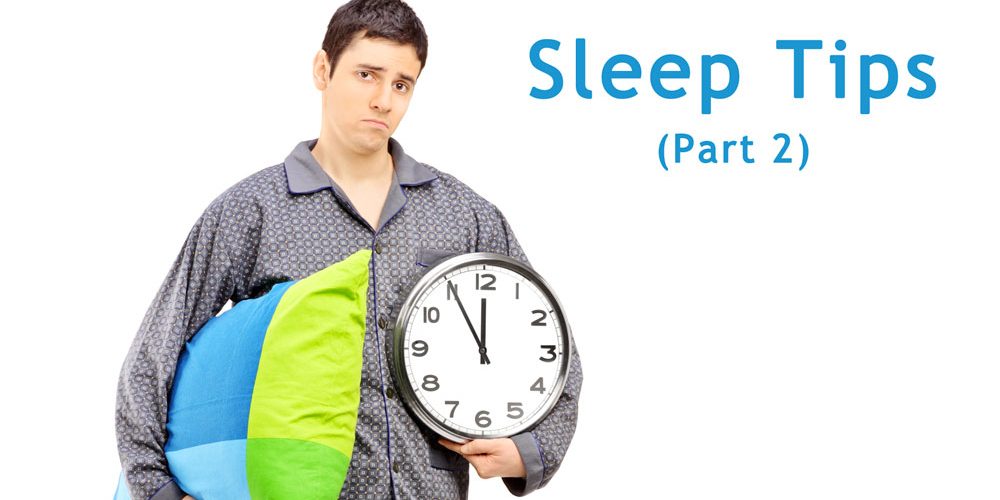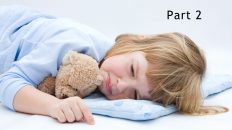By Virginia Gurley, MD, MPH
MB (Marc Braman, MD, MPH):
Any sleep quality tips for early evening? We get home from work and what can we do?
VG (Virginia Gurley, MD, MPH):
Yeah, late afternoon and early evening seems to be the time of day when formal exercise like sports, yoga, or just a gym workout will have the greatest positive effect on sleep quality. It’s sort of like getting plenty of fluids. This aids the body’s temperature changes that help high quality sleep.
MB:
Okay, so that sports stop on the way home from work or the gym, good idea for sleep. Any else for early evening?
VG:
Yep, just like midday, this is the best time to get caught up on drinking non-caffeinated and non-alcoholic beverages, so that your body temperature changes help sustain your sleep through the whole night.
MB:
Excellent. Now getting to nighttime. This is when we usually think about having an effect of what we do on our sleep. Many people already know to start relaxing an hour or so before bedtime. What are some tips many people may not be aware of?
VG:
The biggest tip is to avoid bright light, and especially blue-enhanced lights, at least one hour before your ideal bedtime. Blue-enhanced lights are commonly found in halogen lightbulbs, or cool compact florescent lights, and then especially digital display screens like computers, TVs, and tablets.
MB:
What about tips related to dinner?
VG:
Good question. Eating dinner at least 2-3 hours before your ideal bedtime is really important, and you want to make sure you don’t eat a lot of simple carbohydrates and protein. And whatever you do, don’t eat late night snacks because this strongly delays the time when you start getting sleepy, and therefore you won’t sleep as long during the night or get as high quality sleep.
MB:
Good. Many of us like to enjoy some music, some relaxing music like maybe before bed. Is there any research on that?
VG:
Yes, there is. Research has shown that listening to music that has a 60 beat-per-minute rhythm is especially calming. And it’s not just mentally calming, it’s also physiologically calming. And so that can be a great way to wind down and get ready for high quality, restful sleep.
MB:
So that nice music in the evening is a good thing. Excellent, so we can manage our sleep at night to a large degree by what we do during the day.
Thank you so much, Dr. Gurley.
VG:
Thank you, Dr. Braman.
Effects of artificial dawn on sleep inertia, skin temperature, and the awakening cortisol response. Van De Werken M, Gimenez MC, De Vries B, et al. J. Sleep Res. 2010;119, 425-435. doi:10.1111/j.1365–2869.2010.00828.x.
Healthy clocks, healthy body, healthy mind. Reddy AB, O’Neill JS. Trends in Cell Biology. 2009; Vol.20 No.1. doi:10.1016/j.tcb.2009.10.005.
Dynamic interactions between musical, cardiovascular and cerebral rhythms in humans. Bernardi L, Porta C, Casucci G, Balsamo R, et al. Circulation. Journal of the American Heart Association. 2009. 119;3171-3180, doi:10.1161/CirculationAHA.108.806174.





